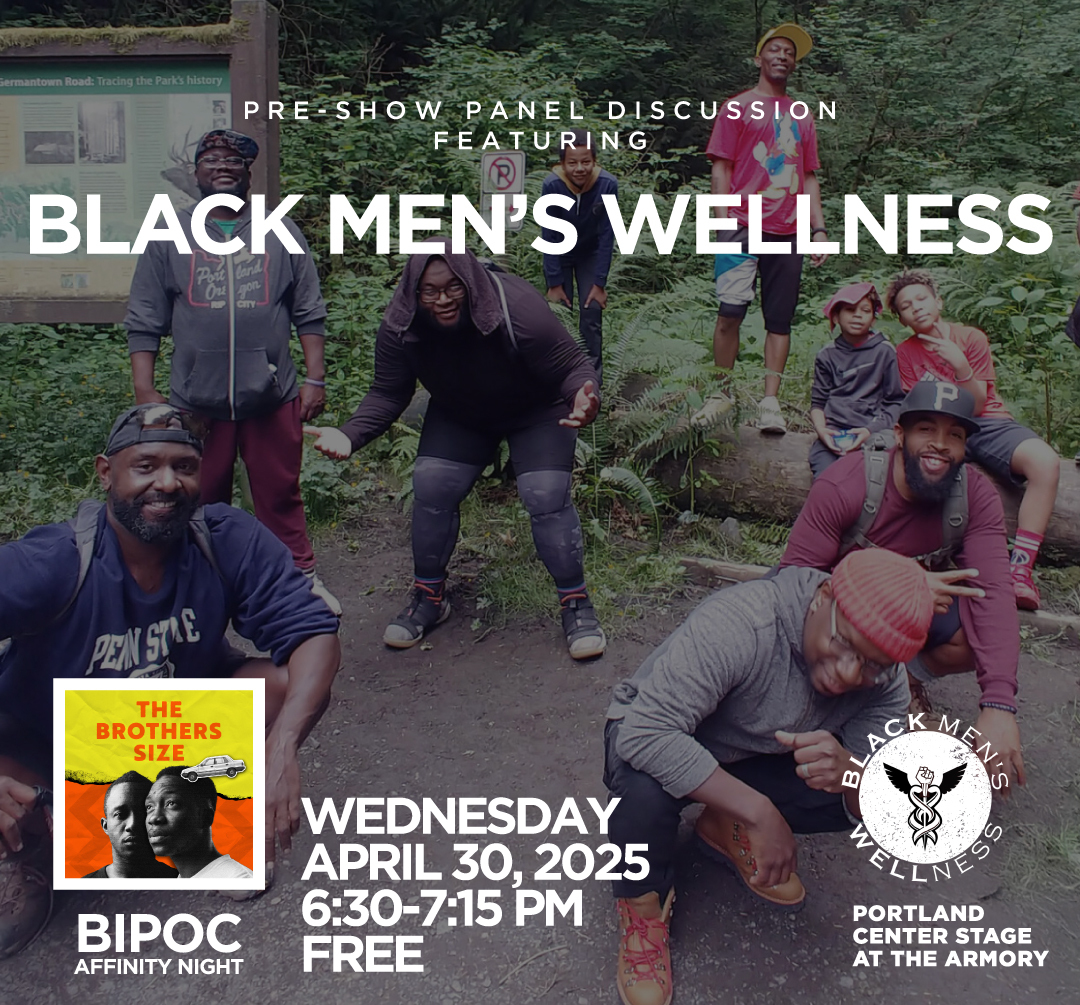From Graphic Novel to Stage
"Alison Bechdel’s comic strip Dykes To Watch Out For became a countercultural institution among lesbians and discerning non-lesbians all over the planet. And her more recent, darkly humorous graphic memoirs about her family have forged an unlikely intimacy with an even wider range of readers.
Bechdel self-syndicated Dykes to Watch Out For for twenty-five years, from 1983 to 2008. The award-winning generational chronicle has been called “one of the pre-eminent oeuvres in the comics genre, period.” (Ms. magazine)
In 2006 she published Fun Home: A Family Tragicomic. Time magazine named it the Best Book of 2006, describing the recursive investigation into her closeted bisexual father’s suicide “a masterpiece about two people who live in the same house but different worlds, and their mysterious debts to each other.” Fun Home was adapted into a musical by the playwright Lisa Kron and the composer Jeanine Tesori. It opened on Broadway at the Circle in the Square Theater on April 19, 2015, and won five Tony Awards, including “Best Musical.”

The process of adaptation from an interview with The Atlantic
What was your relationship with musical theater before Fun Home? Were you a fan?
Not particularly. My mother was an actress so I’d see her in plays growing up. Other than that, musicals, as a form, were just complete alien territory to me. In fact, I think that’s partly why I agreed to the whole project. I didn’t feel a particular investment. I couldn’t even imagine my story as a musical. I felt like I could let go of it.
Were there any film or TV offers?
There was a film offer, very early on, and I thought about it. And I thought it would be a really terrible thing if a bad movie got made about this book. I really didn’t think I could live with that.
So you turned it down?
I don’t mean to make myself sound more noble than I actually am. I didn’t turn it down. I decided, how much is my soul worth? And I decided it was worth $50,000, because that was the amount of money that would make a substantial change in my life. So I asked for that amount. And they said No, that’s too much, we can’t do that. And I felt a great relief about it.
There are three Alison Bechdels in the stage version of Fun Home. There’s small Alison who wants to understand her remote, often angry father; college-age Alison who comes into her lesbian identity soon before her father takes his own life; and 40-something cartoonist Alison who struggles as she tries to tell the story with cartoon captions. What was that like, to see these three versions of yourself on stage?
I can’t put that into language yet. It’s very strange and surreal. It also feels like a tremendous gift, because they got so much so right. It’s a really amazing feeling to see my family resurrected in this way. The three Alisons correspond to my own idea of myself. I’m someone who was always writing about my life. So that, in a way, feels natural to me.
At the preview I attended, I saw you in the lobby with your 91-year-old aunt and your brothers. How did it feel watching the show sitting with them? Was their reaction to the show different than their reaction to the book?
You don’t see people reading your book. You do see people watching a play. Which is, I guess, why people write and perform in plays because you get that immediate feedback. But it’s also a very emotional medium. Musicals can be very emotionally powerful. I think that Lisa and Jeanine drew something out of my book that I was not able to get to, a really potent, cathartic feeling.
Self-conscious?
Super self-conscious. That gets in the way of my emotional response. The first time I saw the play, I was sobbing. But now I can’t help but having a certain guard up. It’s much the same as when my father actually died. I cried for five minutes and then I stopped. And that was the last time I cried about it for many years.
Fun Home is a graphic novel but there’s only one graphic image from the book that appears in the show, and that’s the image of your father hoisting you in the air, in the game of airplane. Where did that idea come from? Was that a surprise to you?
That was a total surprise to me. At earlier stages there were elements of my drawings that were incorporated. At a certain point I realized that they were not going to do that any more and I felt kind of disappointed. But I was like, Fine. They got to the essence of the book. It doesn’t matter. But then there’s that final image, which is the beginning image from the book. And that felt very powerful to me, to limit it to one image, at the very end. And that perfect image that sums everything up was very wonderful.
Why is it “perfect?”
Most of the time I was working on Fun Home, it began on what is now page three. Then I had the realization that what the book was really about is how I learned to be an artist from my father. So I bookended my story with James Joyce's incantation at the end of A Portrait of the Artist as a Young Man, "Old father, old artificer, stand me now and ever in good stead." He's taking off; he's going to be a writer. The musical can't go off into my labored literary allusions, but it does capture the spirit of them very beautifully. Alison gets launched by her father, and because of that, she is able to go on and do something he wasn't able to do.

The World of the Play:
From NPR:"Lesbian Cartoonist Alison Bechdel Countered Dad's Secrecy By Being Out And Open"
"In many ways my life, my professional career has been a reaction to my father's life, his life of secrecy," Bechdel tells Fresh Air's Terry Gross. "I threw myself into the gay community, into this life as a lesbian cartoonist, deciding I was going to be a professional lesbian. In a way, that was all my way of healing myself."
On Bechdel's father making her wear feminine clothing
Bechdel: That struggle came so early in my life. It's like one of the first things I remember is wanting to wear boys' clothes and fighting with my dad about it. And sometimes I would win, which testifies to the strength of that feeling in me. But mostly when I did have to knuckle under and dress up for a party or something, it just felt terrible. It just felt very powerless. I felt like I was living some kind of lie. It was not pleasant.
On coming out
Bechdel: I came out by reading books, not by having actual experiences with other people. I had this very formative moment: I was browsing in my college bookstore and I found this book called Word Is Out. It was a book about a documentary film that had been made which was interviews with a whole bunch of gay men and lesbians. I think it was made in the late '70s. I was spellbound by this book and as I was reading it, I had this simultaneous realization that, "Oh my God, I am one of these people in this book," and also that it was OK. Just like that, I accepted it in myself. I didn't have any long period of struggle. I had this great opportunity because of the moment, the generational moment, when I came out. It was OK to be gay in 1980. ...
I've been all about being out and open about being a lesbian since I came out in 1980, and it has been my career — I wrote this lesbian comic strip for many, many years. That was my job, a little bit to my family's horror at first, but they all got used to it eventually.

Portland Center Stage is committed to identifying & interrupting instances of racism & all forms of oppression, through the principles of inclusion, diversity, equity, & accessibility (IDEA).






















